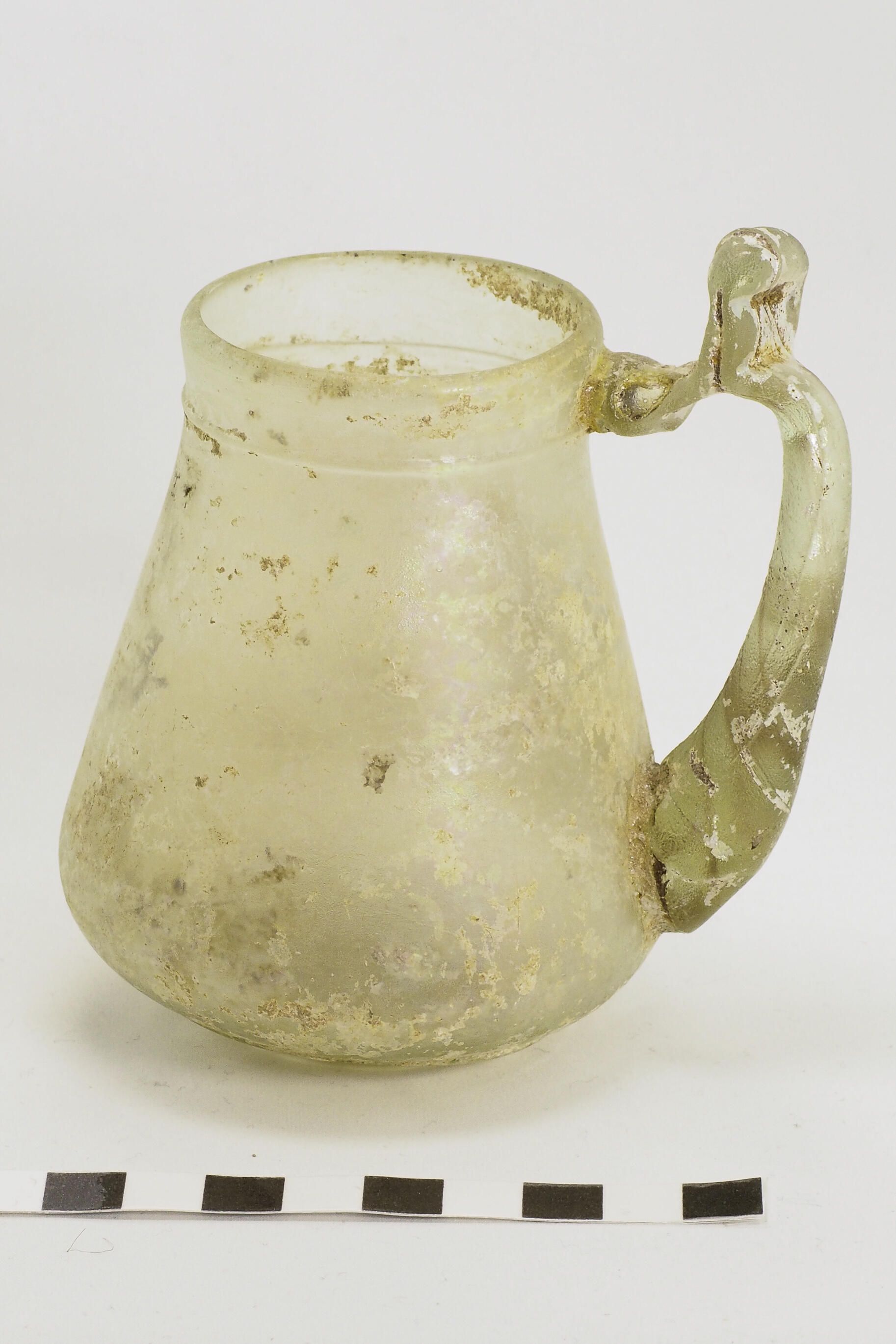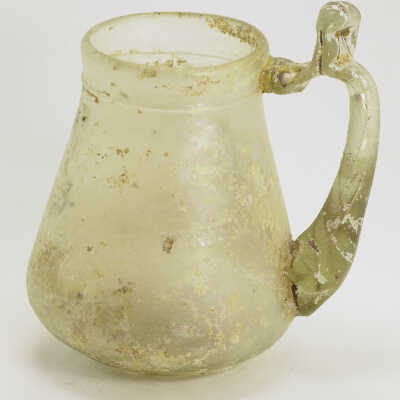Broad-Bottomed Beaker
Name/Title
Broad-Bottomed BeakerEntry/Object ID
11NE-Mi27-165Description
The rim is vertically rounded with vertically descending walls which stop at the attachment of a continuous trailed ring, creating a short neck. From the neck, the walls gently slope outwards creating a bag-shaped body. A gather of glass was dropped near the base of the beaker and drawn up to the height of the rim where the glass was pinched upwards to create a thumb rest and then attached to the rim. The base has two concentric chill marks with a pontil mark at its center. The vessel is intact with some iridescence and the handle seems to have been a later addition to the vessel.Use
Tableware, ContainerContext
Glass beakers or glass drinking vessels were not manufactured until the Roman period. They only began to be manufactured for everyday use with the advent of glass blowing. In addition to being used as drinking vessels, beakers were also used as containers for various ointments and foods which would then be sealed with cloth, leather, basketry, or leaves to prevent the ointment or food from spoiling quickly. The shape of the vessel is characteristic of the third century CE when it was more common for beakers to appear without a handle, thus explaining the lack of handle at the time of manufacturing.Made/Created
Date made
100 CE - 300 CETime Period
Roman ImperialEthnography
Culture/Tribe
Near Eastern - Syro-Palestine

